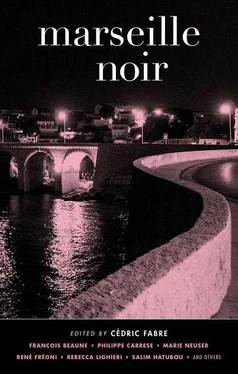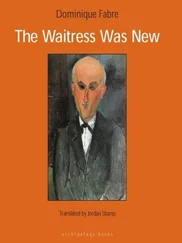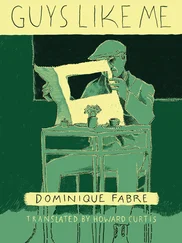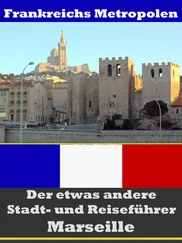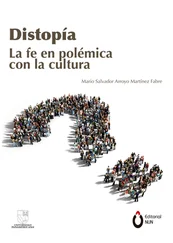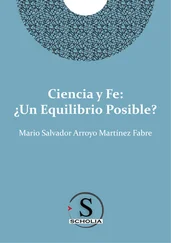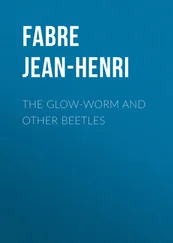Cédric Fabre - Marseille Noir
Здесь есть возможность читать онлайн «Cédric Fabre - Marseille Noir» весь текст электронной книги совершенно бесплатно (целиком полную версию без сокращений). В некоторых случаях можно слушать аудио, скачать через торрент в формате fb2 и присутствует краткое содержание. Год выпуска: 2015, Издательство: akashic books, Жанр: Крутой детектив, на английском языке. Описание произведения, (предисловие) а так же отзывы посетителей доступны на портале библиотеки ЛибКат.
- Название:Marseille Noir
- Автор:
- Издательство:akashic books
- Жанр:
- Год:2015
- ISBN:нет данных
- Рейтинг книги:5 / 5. Голосов: 1
-
Избранное:Добавить в избранное
- Отзывы:
-
Ваша оценка:
- 100
- 1
- 2
- 3
- 4
- 5
Marseille Noir: краткое содержание, описание и аннотация
Предлагаем к чтению аннотацию, описание, краткое содержание или предисловие (зависит от того, что написал сам автор книги «Marseille Noir»). Если вы не нашли необходимую информацию о книге — напишите в комментариях, мы постараемся отыскать её.
Marseille Noir — читать онлайн бесплатно полную книгу (весь текст) целиком
Ниже представлен текст книги, разбитый по страницам. Система сохранения места последней прочитанной страницы, позволяет с удобством читать онлайн бесплатно книгу «Marseille Noir», без необходимости каждый раз заново искать на чём Вы остановились. Поставьте закладку, и сможете в любой момент перейти на страницу, на которой закончили чтение.
Интервал:
Закладка:
I felt nauseous. I took Aurore by the arm and pulled her outside. “Let’s split, they’ll probably show up here soon.”
“The ferry. Follow me.”
We ran right past the line of cars. At the ticket checkpoint Aurore talked to a guy in a white shirt and tie. She pulled a wad of bills out of her pocket and the guy stuffed it in his; then he gave Aurore two boarding tickets and let us through.
We rushed onto the open mouth of the ferry, climbed narrow stairs, and found ourselves on the deck, where we dashed to the front of the boat.
I sat down on a metal bench facing the horizon and grabbed the armrests. The mistral and spray were slapping at me and I realized to my surprise that I wasn’t feeling at all seasick. Aurore was grasping the railing and her eyes were closed. She had a smile on her lips and seemed to be drinking in the salt air.
A young man walked by in front of me. The back of his Olympique de Marseille T-shirt read, Marseille Too Powerful. He approached a group of passengers who seemed to be in the middle of an argument. Because of the wind whistling through the rigging, I only caught fragments of the conversation. One of them seemed to be explaining that the two former soccer players had been taken hostage and made this clip under duress. Then they all went back inside the boat.
I tried to accept the absurdity of what was happening to me, what was happening to all of us. That this was the way the world worked, with guys who came out of nowhere ordering us to do things that seemed meaningless, and we obeyed from fear of punishment or through simple habit. I felt a little ashamed not to be in mourning for my mother. I was almost relieved. It’s when I thought of Phocéa that I felt sad.
Aurore came over to sit next to me and took my hand. “I was a whore for years, and that was in a port. I held up sailors who started staggering as soon as they set foot on the ground. So there are things I can feel. This is my time. To raise anchor. And for you too, it’s time.”
The ship bellowed and started moving. When it went past the last dike, I saw them on the open sea: dozens of kiteboarders shooting across the crests of the waves with cries of victory, while columns of smoke rose from every corner of Marseille. As if it were their last ride.
For me, it was a first crossing. Everything could begin at last.
ABOUT THE CONTRIBUTORS
David and Nicole Ball have translated six novels and one book-length essay together, stories in Akashic’s Paris Noir and Haiti Noir, and many poems and stories elsewhere. Their work has twice been awarded grants from the French Cultural Service in New York. David’s translation of Jean Guéhenno’s Diary of the Dark Years, 1940–1944 won the French-American Foundation’s Translation Prize for nonfiction in 2015. David and Nicole divide their time between Northampton, Massachusetts and Paris.
François Beaune was born in Clermont-Ferrand in 1978. He is the author of Un homme louche and Un ange noir, and the founder of the art journal Louche, the cabaret show Le Majestic Louche Palace, and the website Loucheactu. In partnership with Marseille-Provence 2013, he spent a year searching for “true stories from the Mediterranean” in a voyage that led him to twelve ports. The collection of these stories, La Lune dans le puits, was published in 2013. Beaune currently lives in Marseille.
Philippe Carrese was born in Marseille in 1956. Immersed in Mediterranean culture, he has written fifteen colorful novels and directed a number of well-received films for television and cinema. His most recent work, Virtuoso Ostinato, was published in 2014. In addition to his activities as a writer and director, Carrese is a music composer and sometimes indulges in creating political cartoons for newspapers.
Patrick Coulomb was born in Marseille in 1958. Trained as a geographer, he is the author of several novels and short story volumes including, most recently, L’inventeur de villes. He is also the cofounder of the publishing house L’Écailler, and currently works as a journalist for the newspaper La Provence.
Cédric Fabre lives and works in Marseille. He is a freelance journalist who also runs writing workshops. A lover of pop and rock cultures and of literary “subgenres,” he has written novels that flirt with the fantastic (La commune des minots) and crime novels, the last of which, Marseille’s Burning, came out in 2013, the year the city was named the European Capital of Culture.
René Frégni was born in Marseille in 1947. He deserted from the army at the age of nineteen and lived in Turkey under a false identity doing odd jobs. He was eventually found and spent six months in prison, where he began his career as a writer. He ran workshops in Baumettes prison, and has written close to a dozen novels, including his most recent publication, Sous la ville rouge. Currently working as a psychiatric nurse, he divides his time between Marseille and Manosque.
Christian Garcin lives near Marseille, where he was born in 1959. His novels, short stories, poems, travel writing, and essays about literature and paintings have been published by Gallimard, Verdier, l’Escampette, and Stock. His most recent novel, Selon Vincent, takes place in France, Russia, and south Patagonia between the nineteenth century and the present day.
Salim Hatubou (1972–2015) was born in the Comoros. He arrived in Marseille at the age of ten and grew up in the Solidarité housing project in the North End. A novelist and storyteller, he was influenced by his second home as well as his native archipelago. He is one of the most prominent authors of Comorian literature in French. His last book was Que sont nos cités devenues? in collaboration with the photographer Jean-Pierre Vallorani.
Rebecca Lighieri, a.k.a. Emmanuelle Bayamack-Tam, was born in Marseille and has lived there for twenty-three years. She is a founding member of the organization Autres et Pareils and codirector of the publishing company Contre-Pied. Lighieri is the author of two plays and eight novels, all published by P.O.L. Her latest novel, Husbands, came out in 2013.
After being a Red Guard in the 1970s, Emmanuel Loi went bad and began a life of literary crime. He is notorious for twenty-odd books, got mixed up in the world of theater, and did time on the radio. His punishment is now recognition, something he no longer flees like the plague. His most recent book, a despairing love song, is Marseille amor.
Marie Neuser was born in Marseille in 1970. She acquired a passion for writing very early on, while studying Italian in Aix-en-Provence. Her first novel, Je tue les enfants français dans les jardins, was published by l’Écailler in 2011; it was followed by Un petit jouet mecanique in 2012, which won the Prix de la Ville de Mauves-sur-Loire and the Prix Marseillais du Polar (the Marseille prize for a crime novel) in 2013.
Pia Petersen was born in Copenhagen, Denmark. She came to France when she was young, and learned the language while doing odd jobs and studying philosophy at the Sorbonne. Peterson is the author of more than ten novels, all written in French; her most recent publication is Mon nom est Dieu. She also contributes to the literary journals l’Atelier du roman and La revue littéraire, and splits her time between Marseille, Paris, and Los Angeles.
Serge Scotto is a novelist, lyricist, graphic artist, illustrator, and journalist. His literature often alternates between humor and horror. His dog Saucisse became famous as a candidate in the 2001 Marseille municipal elections.
Minna Sif was born in Corsica to a family from the south of Morocco. She lives in Marseille, where she writes and runs writing workshops. She has published two novels, Massalia Blues and Méchamment Berbère, and her short fiction has appeared in the anthologies Scandale, Une enfance corse, and Le pays natal.
Читать дальшеИнтервал:
Закладка:
Похожие книги на «Marseille Noir»
Представляем Вашему вниманию похожие книги на «Marseille Noir» списком для выбора. Мы отобрали схожую по названию и смыслу литературу в надежде предоставить читателям больше вариантов отыскать новые, интересные, ещё непрочитанные произведения.
Обсуждение, отзывы о книге «Marseille Noir» и просто собственные мнения читателей. Оставьте ваши комментарии, напишите, что Вы думаете о произведении, его смысле или главных героях. Укажите что конкретно понравилось, а что нет, и почему Вы так считаете.
